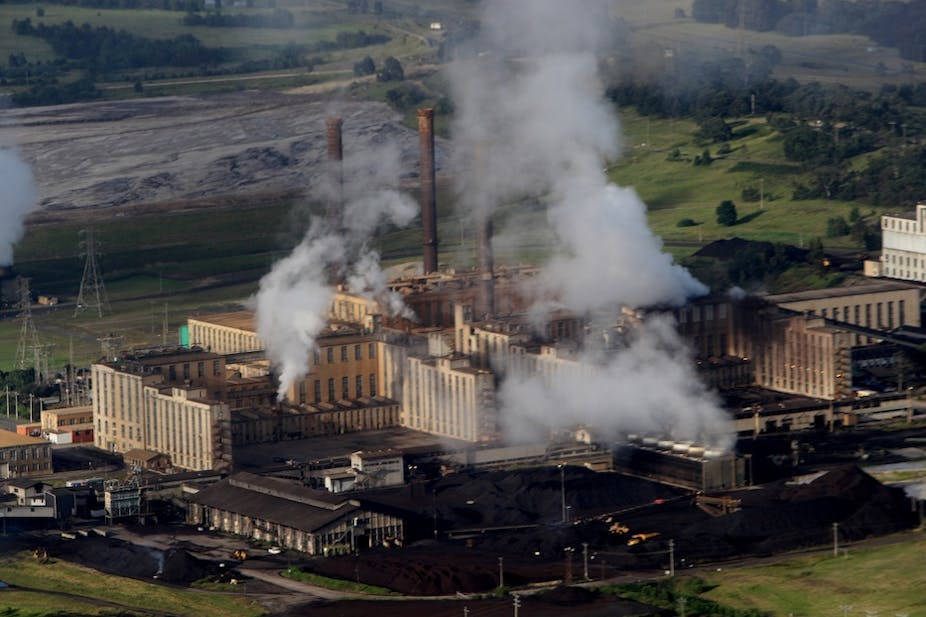The release of Australia’s draft energy white paper has outlined a future where Australia continues to be largely dependent on fossil fuels, embraces uranium and expands existing deregulation and privatisation of energy markets.
But Hugh Outhred, Professorial visiting Fellow in energy systems at the University of New South Wales believes the paper has failed to deal with the challenges and complexities we face meeting Australia’s future energy needs.
Overall, what are your impressions about the draft white paper?
It’s really problematic. I think what the paper is doing is reactivating unresolved conversation about the energy sector. Maybe that’s what a white paper is supposed to do - but normally we expect from a white paper something closer to a resolved policy position.
The most obvious example is the question of resources. We should be reaching some conclusions on a number of topics: the balance between fossil fuels and alternatives such as nuclear and renewable energy - and more specific issues, such as the coal versus gas debate, and the role of carbon capture and storage. Also, there are important open questions about future electricity demand, which seems to be slowing - at least in the rate of growth - and then there are the uncertain implications of “smart grids” and electric vehicles.
On the nuclear question, we haven’t got anywhere near the question of technological choice, which is quite critical, and in renewables there is unresolved, poorly run conversation about the non-storable resources versus storable ones - the question of intermittency and what do you do when the wind doesn’t blow.
So, rather than helping up towards a landing on those things, the effect of the report in the public space has been to reactivate all of the debate. Likewise it has reactivated the conversation about climate change response - do we, don’t we? should we, shouldn’t we? and the question about export versus local use of natural gas and increasingly coal seam gas and its environmental impacts. From the responses today by many stakeholders, it has simply highlighted how many unresolved issues the country faces.
The other unresolved question is the role of market and governments. Some people are saying, that’s great, we’ll let the market sort it out, others are saying the market is not going to work. We don’t have in the paper a way of resolving that question.
What is in there you think is positive?
It is probably useful to stir up the dust a bit, but in itself it doesn’t lead us to some kind of social consensus. These long-term nationally significant issues will need a consensus that outlasts the political cycle.
A major question is: does this report matter more than a one week political debate that disappears again in the political noise? As it stands it is likely to be a four day wonder because there appears to be nothing in there that establishes ongoing processes for tackling these big social questions.
The report does give some very specific recommendations, such as privatisation of the state-held power assets.
That (privatisation) is just political dust unless it ties into specific choices that will be made at state level. For example in NSW, the state government has to plod on to resolve what to do now with the terribly managed partial-privatisation of electricity assets in NSW, and there is also a new parliamentary enquiry into energy resources. Western Australia is reconsidering its energy industry options at the moment; Victoria is wondering what to do next about brown coal and Queensland is grappling with the issue of the unintended consequences of coal seam gas. And on nuclear, we are just reopening an unresolved debate from the past around that.
What needed to be in there?
If I had been trying to produce something like this, I would have taken much more care to propose process options (federal and state) rather than try to stipulate specific outcomes, which is just trying to pre-empt debates that clearly aren’t resolved.
Our energy needs in Australia will be certainly be influenced by what comes out of the financial crisis - does Australia end up in a recession or not? The report suggests $240 billion in possible investment in the energy sector - where will this come from? If the financial crisis re-emerges, that will certainly influence technology choice because people will be far less inclined to invest in high capital cost options. This rather silly discussion about base-line versus peak energy use (smart meters) seems to think it is just an energy question. It’s more than that: for example it’s also a financial question, a risk-management question as well as a debate about how power stations are operated - for example Garnaut 2011 Update Paper 8 suggested a possible non-baseload future for brown coal generators (p 20) that would allow them to contribute to meeting summer peak load while keeping annual emissions low.
It’s important to ask what are the full range of factors that can influence outcomes. Electricity demand is highly tied to the state of the economy, and also residential demand - we are already seeing big changes in demand and behaviour in our electricity market that I don’t think are fully understood yet.
There are all sorts of forces at play out there. If we don’t have an adequate discussion of the context, it’s ridiculous to jump to solutions - to say fossil fuels are the answer, or uranium is the answer, or renewable are the answer - when we don’t even know what the question is.

